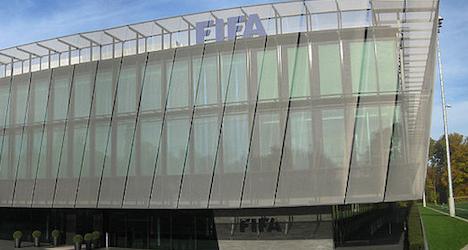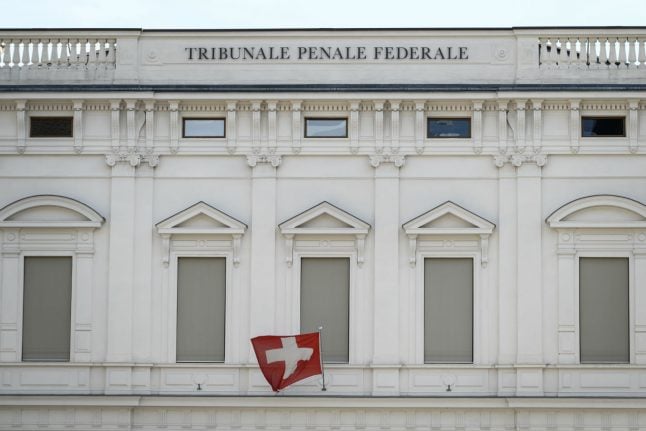In a statement, global football's governing body said an appeal hearing upheld in its entirety a decision handed down by the FIFA disciplinary body on September 27th.
As a result, fans will be banned from Ukraine's first home game when the 2018 World Cup qualifiers kick off in 2016.
Ukraine are also barred from playing any of their 2018 World Cup qualifiers in the Arena Lviv, scene of the incidents.
On September 6, during a qualifier against minnows San Marino, Brazilian-born Ukraine player Edmar faced racist taunts by his own team's fans, who also made Nazi salutes and displayed SS symbols.
"The offensive and discriminatory actions of a group of Ukrainian supporters were shameful and a clear breach of the FIFA Disciplinary Code," FIFA said.
Ukraine were also fined 45,000 Swiss francs (36,500 euros, $49,460) by FIFA, and warned that their fans' future conduct would be squarely in the spotlight.
"FIFA is committed to fighting all forms of discrimination in football and works closely with its member associations around the world to educate and inspire a message of equality and respect," FIFA said.
The governing body has stepped up its anti-racism efforts, in March 2013 creating a specific task force to battle the problem.
"FIFA also insists on strict punishments to send out a strong message that discrimination has no place in the game," FIFA said.
Ukraine, whose 2014 World Cup qualifying run was halted by France in last week's playoffs, have also found themselves under scrutiny over an October qualifier against Poland.
Some supporters brandished flags which during World War II were the banner of the Nazi German-allied Ukrainian Insurgent Army (UIA), which massacred Jews and Poles.
The flag is commonly used by Ukrainian nationalist and far-right groups — the latter have found fertile territory in Eastern Europe's stadiums since the fall of the Iron Curtain two decades ago, campaigners note.
But Ukraine's nationalist Svoboda party — now the fourth-largest in parliament, and whose heartland is in the western city of Lviv — says history has been slanted against the UIA, which also fought the Soviets in a vain effort to win independence, and that honouring it in stadiums is legitimate.
Svoboda's electorate ranges from neo-Nazis and hardcore nationalists to mainstream voters weary of corruption and political wrongdoing in Ukraine.
The party was rebuked by FIFA last month after a delegation including members of parliament visited FIFA's Swiss base and posed with flags.
FIFA
FIFA rejects Ukraine stadium ban appeal
Zurich-based FIFA on Wednesday said it had thrown out an appeal by Ukraine against a football stadium ban imposed in the wake of racist incidents during their 2014 World Cup qualifying campaign.
Published: 27 November 2013 17:01 CET

Photo: FIFA
Url copied to clipboard!


 Please whitelist us to continue reading.
Please whitelist us to continue reading.
Member comments